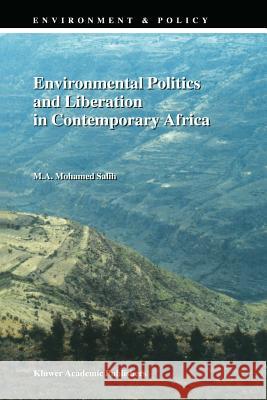Environmental Politics and Liberation in Contemporary Africa » książka
Environmental Politics and Liberation in Contemporary Africa
ISBN-13: 9789048151967 / Angielski / Miękka / 2010 / 188 str.
Nowadays, the environment looms large in the analysis of conflict in developing societies, and the precise role it plays is the subject of an ongoing debate. The de bate has moved on from the earlier, but still popular, notions of 'power struggles', 'class struggles' and 'ethnic conflicts', to a perception of conflict as the product of intense group competition for resources. Where the state controls the distribu tion of resources, itself inevitably becomes party to conflicts whose bone of con tention is access to state power as the most efficient means of gaining access to resources. The resources in question are social (health, education, transportation, communication, recreation, etc. ) and material (land, water, housing, jobs, con tracts, licenses, permits, etc. ). In parts of the world, and especially in Africa, di minishing resources and authoritarian state rule exacerbate group competition leading to political confrontation. This is the line I have followed in analysing conflict in the Hom of Africa (Markakis, 1987, 1998). Mohamed Salih's first contribution in this volume is to move the debate a step beyond this line, which can be criticized as unduly materialist. He does it by bringing culture into the realm of resources, not only as a resource in itself, but also as the agency that assigns natural resources their value. Culture thus becomes a contextual element in conflict over resources whose value is culturally deter mined."











